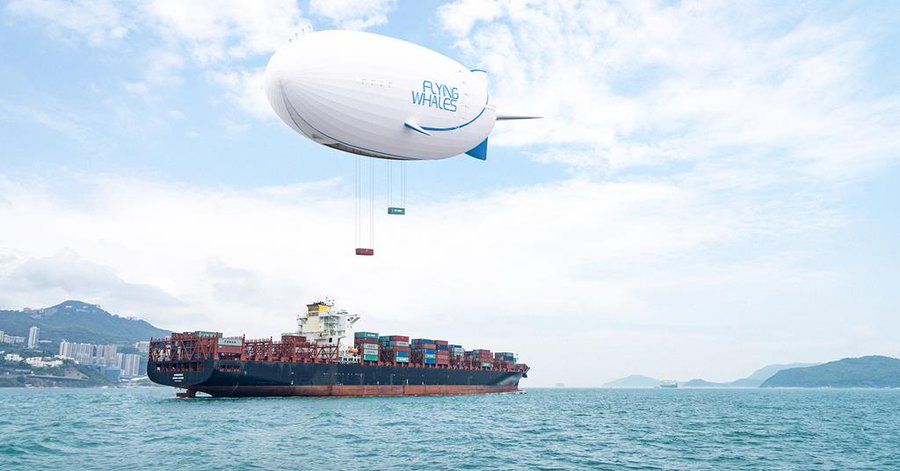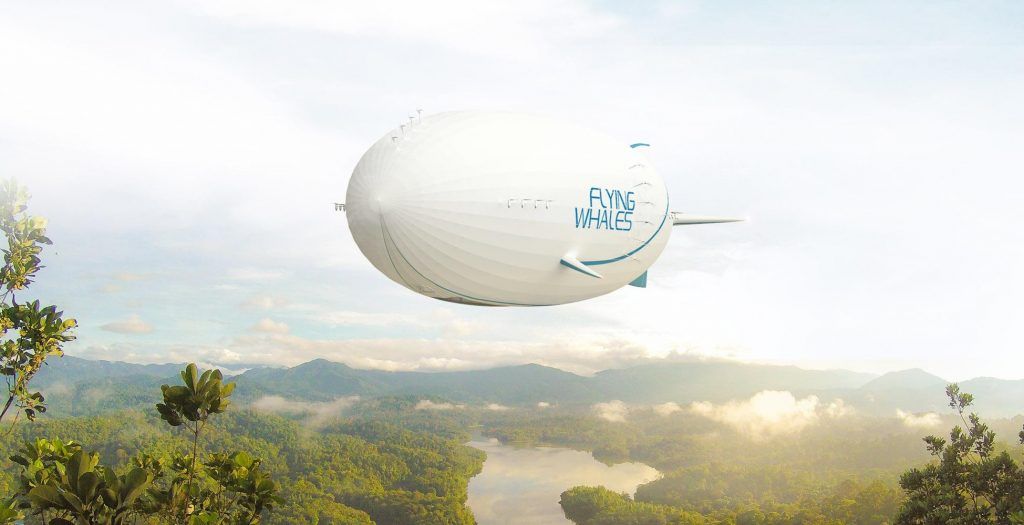Flying Whales is a French company that proposed using rigid airships to carry heavy load cargo to and from isolated hard-to-reach areas. Before we talk about the company proper, it is best to explain what a rigid airship is.
When describing a rigid airship, think back to the German Zeppelin airships that used to carry people between the United States and Europe. Sadly following the May 6, 1937, Hindenburg disaster in New Jersey in which 36 people died when the airship caught fire, using airships as a mode of transport fell out of favor.
Unlike a balloon that keeps its shape because of the air or gas pressure, a rigid airship has an internal light aluminum metal frame with a fabric cover. To make it lighter than air and able to fly, the airship is filled with helium. They used to use hydrogen, but because it is highly flammable, as was seen in the Hindenburg disaster, helium is now the preferred gas.
The problem with helium is that it is costly when used in the volume needed to fill an airship and is the main reason why, other than the Goodyear blimps, you see few airships flying today.
Flying Whales is a French startup
Flying Whales is a French aeronautic startup based in Suresnes, France. The company planned to develop an airship that could be used to transport lumber from isolated, landlocked locations. Able to transport loads as heavy as 60 tons, three times that of a heavy-lift helicopter. The ability of the LCA60T to hover indefinitely while it loads and unloads cargo is revolutionary.
Image: FLYING WHALES
Not needing an area to land, the LCA60T has a low environmental impact and is ideally suited for the point-to-point transport of heavy items from hard-to-reach areas. The first people to get aboard the project were the French National Forests Office, which sought a way to transport logs from areas without road access. Since then, more than 50 other companies have become involved, including Thales, Safran, and Honeywell.
Along with these private companies in 2019, the Quebec government saw Flying Whales’ potential as it sought to raise 30 million euros of funding. Last year Flying Whales raised 122 million euros when France, Monaco, and the insurance giant Société Générale Insurance became interested in the freight company.
An airship can carry tripe the weight of a plane
Flying Whales sees its airships as an ideal solution in four main areas:
- Industry and logistics
- Humanitarian aid
- Forestry
- Power generation
Industry and logistics
Many companies use various facilities to build components for the final product. These components then need to be transported to a facility for final assembly. A great example is Airbus, which uses its Beluga transport planes to move objects between one plant and another. However, a single Beluga flight is five times more expensive than it would cost to use the LCA60T. On top of this, the plane needs an airport to land, whereas the airship can hover and load and unload anywhere.
Humanitarian aid
Unfortunately, natural disasters and people displaced by war or famine are bound to occur. Getting aid to these people can often be hindered by geographical location. Initially delivered by sea or air, the assistance must then be taken in trucks to its final destination. With its ability to fly anywhere and the fact it can carry three times the payload as a plane, the LCA60T is a better option. Flying Whales says that a single airship can take 1,000 tents in a single flight.
Forestry
As we already mentioned, the use of an airship would be a game changer in forestry, allowing workers to transport lumber from complex to reach locations.
Power Generation
As we continue to embrace renewable energy getting the components in place can be a logistical nightmare. Wind turbine blades, for example, can be over 100 feet long and are increasing in size. An LCA60T is ideally suited to carry oversized cargo and can do so with a green footprint, as electric motors are used for power.
[ad_2]
Source link




